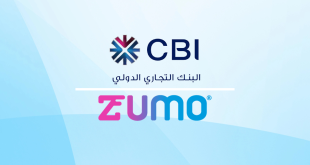BSV blockchain continues to build networks and relationships in the wider open-source software world. Last week, the BSV Association (BSVA) officially joined the Linux Foundation, a move that will promote development by further aligning BSV standards with existing international ones.
The BSVA stressed the need to maintain open standards to ensure interoperability across devices, operating systems, apps/services, currencies and languages. This keeps the door always open to new participants and places BSV at the forefront of any new developments and practices in open source as the two ecosystems grow in tandem.
Thomas Giacomo, Director of Utilization at the BSVA, stressed the importance of aligning BSV standards with those in the much larger open-source community. This is particularly important in the emerging technology of digital wallets, which has seen several competing standards around the world, including many that are closed/proprietary or not compatible with each other.
“It will also allow companies in the ecosystem to leverage this alignment when they use the open-source wallet reference implementation SPV Wallet and ensure that they comply with regulatory requirements, allowing them to open new markets,” he added.
Building networks in all related technology fields
Giacomo also thanked his colleagues Marcin Rzetecki, Aleksander Gora and Shawn Ryan—members of BSVA’s Outreach Team—who have been working hard to make these formal relationships happen.
Similarly, the Outreach Team also recently worked to include BSV blockchain in the World Wide Web Consortium’s (W3C) Blockchain2 Community Group. W3C focuses on promoting development and creating open standards for web-based applications and has similar goals to the Linux Foundation and the BSVA in lobbying for best practices and outcomes that benefit all stakeholders.
Founded in 2000 as Open-Source Development Labs, the Linux Foundation is a non-profit organization that functions as a “foundation of foundations.” As its name suggests, it has historically focused on projects that run on Linux OS (and its multiple distributions). However, its role has expanded in recent years into related ecosystems with matching philosophies, including hardware, networking, cloud computing and blockchain.
Its corporate membership includes some of technology’s biggest names, including Microsoft (NASDAQ: MSFT), Oracle (NASDAQ: ORCL), Meta (NASDAQ: META), Tencent (NASDAQ: TCEHY) and IBM (NASDAQ: IBM). The list also contains many huge players in the hardware space like Intel (NASDAQ: INTC), Huawei, Qualcomm, NEC, Hitachi (NASDAQ: HTHIF), Fujitsu (NASDAQ: FJTSF), Samsung and Ericsson (NASDAQ: ERIC).
Over 17,000 organizations contribute to the Linux Foundation’s work. Its website also claims 900 open-source projects with 777,000 developers contributing code.
BSVA’s structure and purpose as an association are, in many ways, a microcosm of the Linux Foundation. Both provide a forum for their ecosystems’ various stakeholders to discuss ideas and initiatives and work as liaisons between those working within the ecosystem and others external to it (yet still affected), like regulators and end-users.
Both organizations also support events for developers and run educational programs to create a greater understanding of their missions and related technologies.
The more general philosophy behind the open source/standards movement seeks to advance innovation, accessibility and inclusivity in technology. Closed, opaque and proprietary systems may appear on the surface to benefit those who create them, but eventually have a net negative effect on human and economic development. Openness promotes collaboration and equal access to all, enabling the faster sharing of ideas (and potential problems).
Blockchain is an open system created with these values in mind. The term “democratizing finance” is often overused (and also misused) to promote digital assets, but a scalable blockchain network is capable of securing all the world’s data, not just financial. Therefore, it’s important that the same goals of openness and compatible standards still apply.
Watch: Transitioning to Web3 with AWS & BSV blockchain
title=”YouTube video player” frameborder=”0″ allow=”accelerometer; autoplay; clipboard-write; encrypted-media; gyroscope; picture-in-picture; web-share” referrerpolicy=”strict-origin-when-cross-origin” allowfullscreen>
 Palmer Legals Reaching Your Expectation
Palmer Legals Reaching Your Expectation


